Postpartum Depression: My 14-Month Battle & What Finally Helped
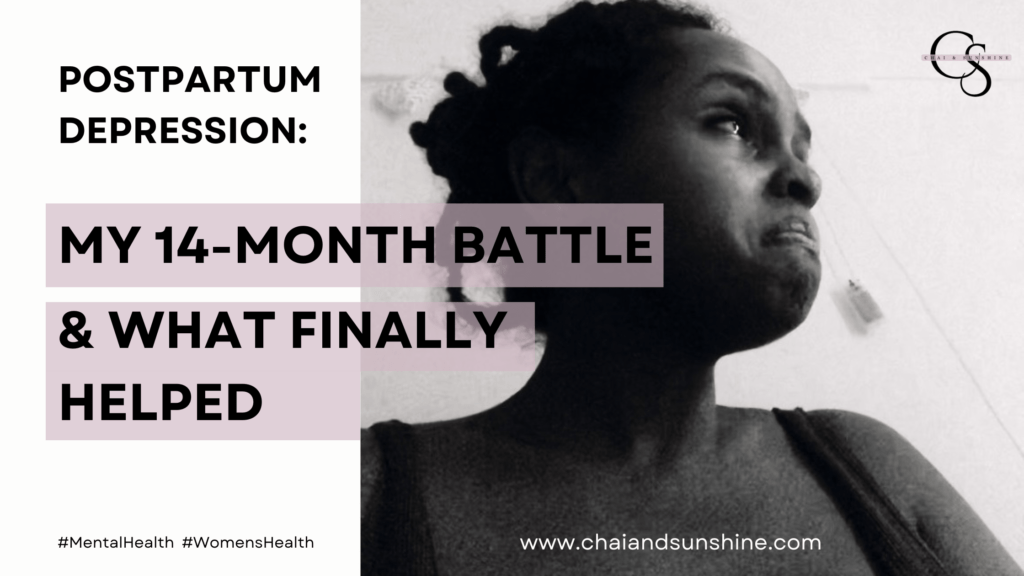
Ever stare bleary-eyed at your beautiful newborns, an existential dread twisting in your gut? And felt that, no matter what you tried, the hopelessness wouldn’t budge?
Did you ever wonder whether you were experiencing postpartum depression (PPD) or were just an unfit parent who had made a colossal mistake by bringing life into the world?
That was me, Haimi, a new mom of twins.
Here’s the thing: I knew depression before pregnancy, but I always managed to climb out of the hole eventually. This time, though, with double the trouble in the cutest possible form, it felt different.
The exhaustion was one thing, but the crushing anxiety and bottomless sadness – that was new. Months blurred together in a haze of feedings, diaper changes, and a constant, nagging question: would I ever feel joy again?
I genuinely didn’t know if I could go on for much longer.
Often, I’d ask myself: is this PPD? I didn’t meet all of the criteria, so I struggled to see myself in what was being written. And because of that, I didn’t get help for a long time.
But there is hope if we all talk to each other. And that’s why I’m sharing my story, along with the questions I grappled with, so you don’t have to walk this path alone.
Let’s break down the confusion and fear surrounding PPD, one question at a time.
Table of Contents
ToggleWhat is Postpartum Depression? (And What Isn't?)
- depression suffered by a mother following childbirth, typically arising from the combination of hormonal changes, psychological adjustment to motherhood, and fatigue; postnatal depression.
What Does Postpartum Depression Feel Like?
Complete this survey to see if you have the symptoms by completing the Edinburgh Postnatal Depression Scale (EPDS) here.
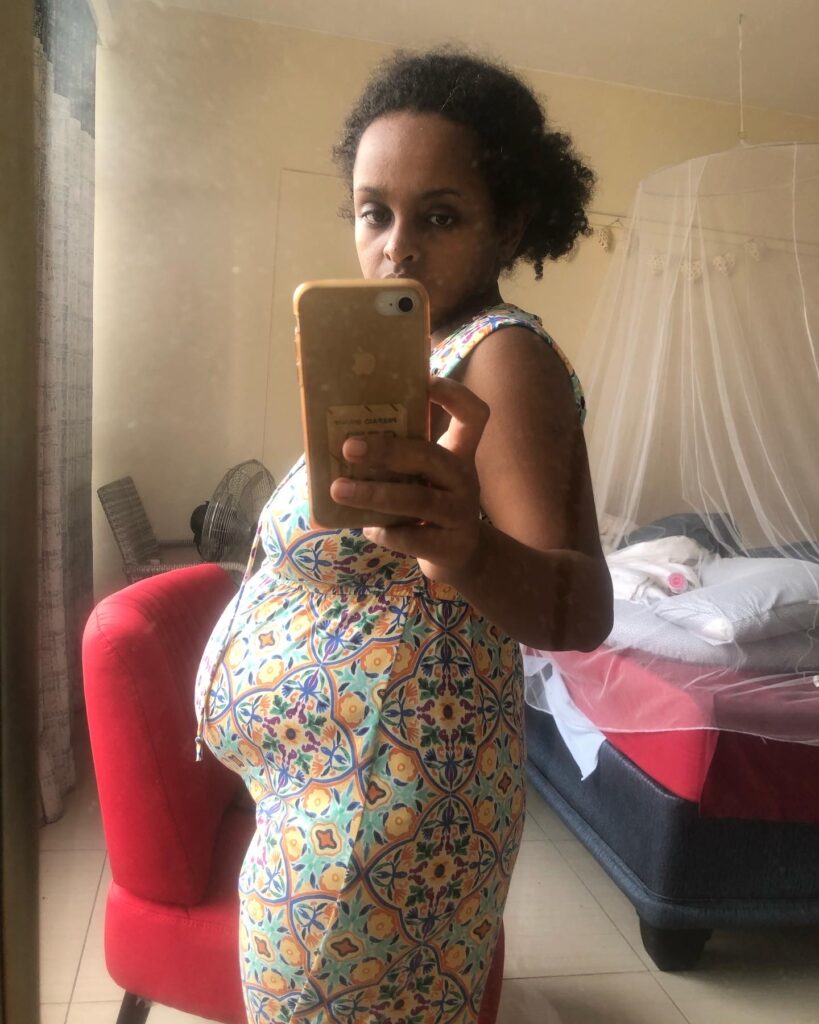
Is It Postpartum Depression or the "Baby Blues"?
So, what’s the difference between PPD and the so-called “baby blues”?
The length and severity.
The baby blues usually come on quickly after birth, make you tired, teary, and tense for a couple of weeks, and then you’re good to go. It also generally does not affect your parenting or adulting abilities. You’re able to reasonably care for yourself and your offspring.
PPD, on the other hand, can start at any point after birth and can last for any amount of time thereafter. The symptoms are often more profound and entrenched. Think: fearfulness, helplessness, hopelessness, regret, guilt, and despair.
Another way I like to think of it is that the baby blues are about physical and chemical changes. Exhaustion, hormonal changes due to birth and breastfeeding, a new routine, etc.
The body takes some time to adjust to this, and the crying and mood swings are a natural result.
PPD has deeper roots. Sure, physical and hormonal changes have a big role to play. But I believe that PPD has a lot to do with our mental make up from before we were pregnant.
Things like lifelong perfectionistic tendencies, coming from a dysfunctional family system, or being fiercely independent can set us up for the big PPD.
A Useful Analogy
Think of the difference between the baby blues and postpartum depression this way: Let’s say you’re on a beach and decide to go for a swim.
The baby blues would be like a wave – maybe a large one – that hits you, maybe knocks you on your butt, and drags you along the sand a little. Not long after, it recedes back into the ocean, and you’re able to pick yourself up and head back to the shore.
You might have a bruise or scrape, and you might be a little stunned, but you otherwise make it out unscathed.
PPD would be if you decided to go out to swim in the sea, get sucked far out into the open ocean by a riptide, and you struggle for dear life to get back to shore. Because PPD, like riptides, can be deadly if help is not found quickly.
It’s an experience that profoundly changes your relationship to life and something that’ll take a while to process.
Can I Still Have Postpartum Depression if I'm Happy Sometimes?
Yes!
Experiencing moments of joy, even happy moments while parenting, would not overrule a diagnosis of PPD. If you otherwise are hampered by an overwhelming sense of hopelessness, loss, regret, guilt, or shame, PPD may still apply.
I had many joyful moments with my beautiful twin girls, and there were many times I felt grateful and privileged to be their mom and to be able to watch them grow.
However, the truth is that the feelings of despair and stuckness that I felt were persistent and always drawing the life out of me from the shadows. And unfortunately, I felt the happiness was what was temporary and fleeting, not the dread or anxiety.
PPD, like life, is not black and white. Both things – moments of happiness and moments of terror – can exist at the same time.
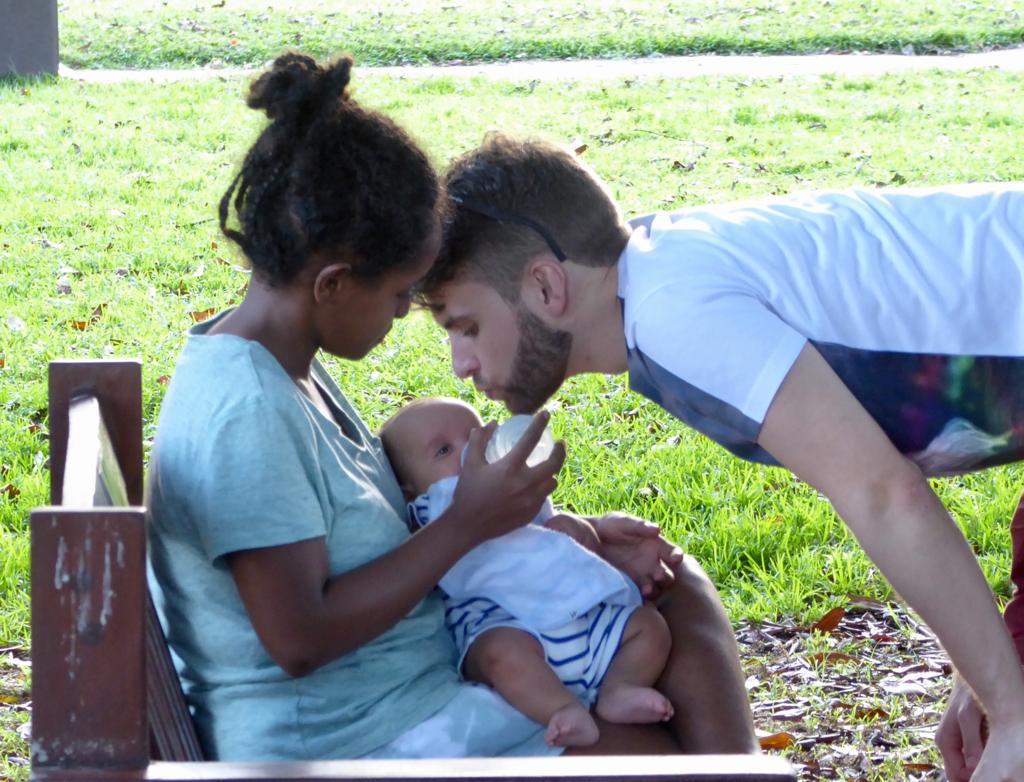
Postpartum Depression and Other Disorders
Did you know there were “categories” to how shitty and out-of-control you feel as a new mom?
We’ve spoken about the baby blues and PPD (that persistent feeling of sadness, worthlessness, guilt, or pleasure, with a sprinkling of lack of sleep, concentration). But did you know that there were other postpartum disorders, too?
- Postpartum Anxiety: Not just the normal jitters of being a new mom. You likely experience constant, intrusive worries about your baby’s health, safety, or development. (I used to worry about my children falling out of an open window, even though our infants couldn’t walk). You might also experience physical symptoms like a racing heart or difficulty breathing. I had a really tight chest – as though there was a rock lodged under my breastbone.
- Postpartum Obsessive-Compulsive Disorder (OCD): This can manifest as intrusive thoughts about harming yourself or your baby, leading to repetitive behaviours (compulsions) aimed at managing the anxiety caused by those thoughts. A lot of the time, PPD can be confused or used interchangeably with postpartum OCD because of how movies or media portray PPD as dangerous, obtrusive thoughts.
- Postpartum Psychosis: This one is a rare but serious condition that can develop soon after childbirth. Symptoms can include hallucinations, delusions (fixed beliefs that are not true), and disorganised thinking or behaviour. With postpartum psychosis, the mother and baby are at immediate risk for deadly harm.
What If I Don't Fit Neatly Into One of the Postpartum Disorders?
I cannot stress this enough: YOU DO NOT HAVE TO TICK ALL THE SYMPTOM BOXES TO BE IN NEED OF HELP.
That was my problem.
Despite my depression-anxiety combo, I felt that I didn’t have ALL the symptoms of PPD and thus concluded that it couldn’t be postpartum depression.
For example, I was very able to bond with my twins. I loved them dearly and could express and receive love. I did not fit the symptom of “unable to bond with child” that every medical article on the first page of the Google results said I would have if I was experiencing PPD.
There were also quite a few happy moments in between the overwhelm, frustration, sadness, exhaustion, hopelessness, and suicidal ideation (more on that, later). I’m also pretty sure that I had a lot of aspects of postpartum anxiety, too.
But what I mean to emphasise is that these psychological disorders are different from, let’s say, strep throat and other physical illnesses that follow a set of clear symptoms.
These postpartum disorders will be as unique as the people they wreak havoc on. The only barometer we should use to decide to do something about it is the question: how do I feel since becoming a mother?
If the answer is something along the lines of: completely overwhelmed by parental and other duties, my emotions, my thoughts, the physical changes to my body and its functions, my ability to think and/or function, and it’s been like this for a while –
When Does Postpartum Depression Start? And How Long Does PPD Last?
Postpartum depression timelines: this is where the true complexity of PPD comes in.
Unlike the baby blues, which usually starts quite soon after childbirth, PPD can strike at any time. For some moms, you might be under the dark cloud days or weeks after you give birth.
For others, like myself, it might creep in months later. In my case, it wasn’t until the initial chaos of twin newborns settled that the weight of PPD truly settled upon me.
But the scariest part?
PPD can linger far longer than expected, and much longer than your old depressive episodes used to. It’s a whole new beast that doesn’t really conform to predictions and statistics. Because while the “average” duration gets thrown around a lot, it doesn’t capture the individual experience. And rather than hang onto what “most women” report, I would recommend really tuning into yourself to understand how you truly feel.
And time is so subjective anyway. Months can feel like an eternity, especially when you’re battling a relentless sense of emptiness or anxiety. For me, those 14 months of PPD/ postpartum anxiety felt like a lifetime. There were moments when I genuinely worried this was my new normal, the new “real me.”
Here’s the crucial takeaway: There’s no standardised timeline for PPD. It can show up unexpectedly and linger far longer than you might anticipate.
If you’re struggling with symptoms, even months after giving birth, know this: you’re not alone. PPD doesn’t discriminate based on timing, so don’t let the fear of a “normal” timeframe stop you from seeking the support you deserve. Your experience is yours and you should own it – know that you don’t have to tick all the PPD boxes.
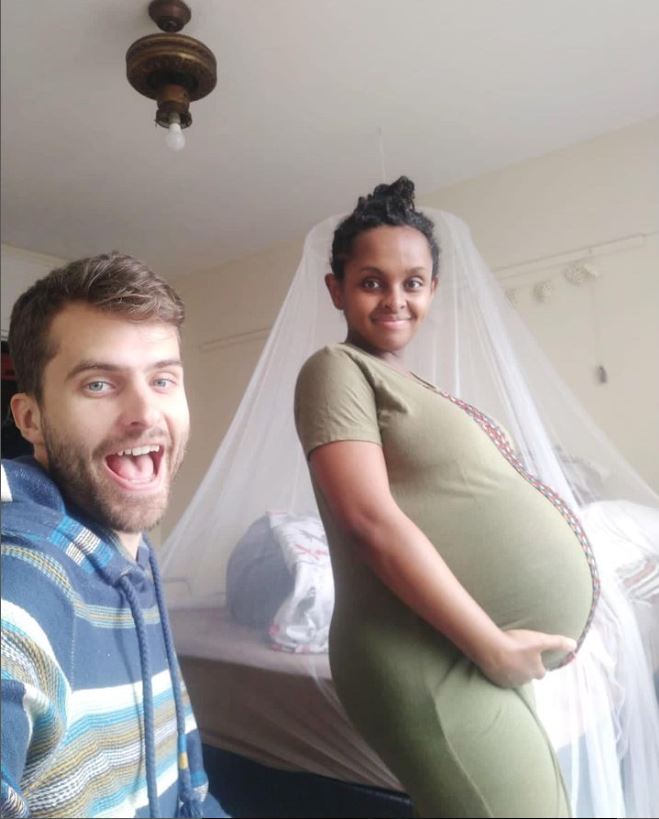
Risk Factors for Developing PPD
Knowing your risk factors can empower you to be more vigilant and seek help faster. But even if you have the “perfect” setup for motherhood, you might still find yourself battling PPD. This is because the risk factors for this invisible struggle can be surprisingly diverse.
Here are some of the key risk factors when it comes to postpartum depression:
- A Hormonal Hurricane: We all know childbirth triggers a hormonal rollercoaster. But for some moms, the dramatic shifts in estrogen and progesterone from childbirth and breastfeeding can leave them more vulnerable to developing PPD. It’s like a biological predisposition that can heighten the emotional impact of the postpartum period. For example, if you have histamine intolerance, endometriosis, PCOS, or other disorders that are highly sensitive to estrogen, you may experience persistent mood swings, brain fog, and depressive symptoms.
- When History Repeats Itself: Past experiences with depression or anxiety can increase your chances of encountering PPD. It’s as if your brain has a blueprint for these emotions, making it more susceptible to them during this vulnerable time. Of course, there are also the potential causes of said depression that may have gone unresolved and are rearing their heads at this most inopportune moment (see the last bullet point).
- The Stressors Stack Up: Let’s be honest, new motherhood is inherently stressful. From sleep deprivation (which is a bonafide torture tactic) to endless feeding sessions, the pressure can feel overwhelming. If you add life stressors like financial worries, health problems, or relationship challenges, the risk of PPD can climb even higher.
- The Support System Cracks: We’ve all heard the adage – “It takes a village to raise a child”. When I found out I was having twins, I lost my job because I refused a transfer to a foreign country, knowing that I would need my family’s help with my babies. But if you feel isolated, alone, or judged by those who are there to support you, it can fuel the flames of PPD. I was very thankful to have a wonderful, equal partner in my husband (who my mother calls “the second mom”), but I know of many women without that fortune, and who have had to battle more patriarchal beliefs around the mother’s role as the child’s caregiver. Half the time, this is espoused by women, like well-meaning mothers and mothers-in-law who lived through those expectations themselves. Feeling like you are not supported while simultaneously not feeling safe to speak up about it can be a really dark place to be in.
- The Unseen Struggles: There’s an invisible load that many moms carry – the pressure to feel a certain way, to be the “perfect” mother. This societal expectation can be incredibly isolating and contribute to feelings of inadequacy. Add motherhood and societal expectations to the many possible unresolved childhood issues, trauma events, limiting belief systems, and neurodiversity out there and it’s obvious how that could tip anyone over the edge. (Thankfully, processing these issues can also bring tremendous relief!)
- Statistics: Research says that first-time mothers, mothers under 25, and mothers carrying multiples are statistically more likely to experience postpartum depression. Which makes sense. It’s very easy to see how any of these ‘risk factors’ could cause someone to feel totally out of their depth.
It’s always good to know the risk factors for a certain disease or disorder – it helps to make sense of things, and may even help prevent needless suffering.
Personally, being someone who needs to understand why things happen or how they are connected, I found comfort in the fact that I was not inherently deficient like I thought for a long time during my PPD experience. The odds (28-year-old, first-time mom of twins with a history of depression, histamine intolerance, and neurodivergence) were not in my favour from the get-go.
But not seeing yourself in these risk factors is okay, too. PPD can affect anyone, regardless of their situation. The most important thing is how you feel and getting help if you’re overwhelmed.
Climbing Out of the Hole: My PPD Story and Healing Journey
My journey started way before I ever had the kids. My PPD-anxiety journey started when I was a kid and with how I grew up.
It started with all the little neuroses I picked up from my upbringing and from the society I lived in, including (but not exclusive to):
- the perfectionism I adopted to please my parents and society,
- an inferiority complex deep in my bones,
- how seriously I took life,
- my fixed mindset, and
- my fear of being a burden (and therefore never asking for help).
When this mixed with the circumstances of my pregnancy, it would have been a miracle if I didn’t get PPD. Here were my risk factors:
- 28-year-old first-time mother
- twin pregnancy
- undiagnosed histamine intolerance
- a history of depression
- the trauma of an emergency C-section and consequent infection
- undiagnosed neurodivergence (sensory processing sensitivity), and
- job loss and moving in with my parents (and moving countries four times thereafter).
So, I got PPD, but didn’t recognise it as such because, in my mind, I didn’t fit the PPD checklist of not bonding with my kids or fulfilling my parental duties.
- I truly felt connected to my children and, in fact, I was probably overperforming my parental duties for quite some time because of the anxiety part of my postpartum disorder.
- My depressive feelings came months after their birth. It was not immediate.
- Then the feelings lasted for ages!
For me, thoughts I struggled with most were around losing my entire former freedom and identity, which were wrapped up in achievement and career progress. I catastrophised about losing my income and about never being able to do anything for me ever again – I was doomed to be a slave to my children’s needs and their birth being a sort of death for me. (My anxiety meant that I did not spend a day away from them until after they turned 2).
Eventually, I was fantasising about my actual death. Some days, it was an occasional thought, but there were many days when the suicidal ideation would be as constant as my first-trimester nausea (basically all day).
The funny part was that, throughout this entire time, I never once told my friends or family how dire my mental situation was. I was always the one who had her shit together and I could not be seen to be breaking down. And I definitely did not want to be a “burden”.
The only one who knew was my husband. I was lucky to have had (and still have) a very supportive partner who loved me through all of that. But eventually, after I passed the year mark on this depression, I realised that the help I needed was beyond what he could offer.
The Turning Point in My PPD Journey - How I Finally Got Out of the Downward Spiral
The first ray of hope came from an unexpected source. Unexpected because I had vowed never to go down this route. Because I was stronger than this and this was for capitalistic Americans who didn’t like to work for anything and always chose the easy way out.
My first ray of hope was antidepressants.
5mg/day of Ecsitalopram (street name Lexapro), to be exact.
Taking antidepressants was the first time I had any sort of respite from all the heaviness. I felt like I was seeing sunlight after living in a dark cave for 14 months. It was a shock: could people feel this happy?
Antidepressants were a lifeline for me and gave me the breathing room I needed. But I also knew that they were a temporary fix while I addressed all the underlying issues causing the depression.
(Also I gained like 15kgs or 30lbs in 3 months and the weight gain trajectory I was on was NOT sustainable).
So, I did another thing that I thought I would never do: therapy.
I was always a sceptic, not because I don’t value inner work and overcoming mental barriers.
But because I had been on a self-help journey for as long as I could remember. I had been journalling since I was 6. What could any therapist tell me about myself that I didn’t already know?
A lot, it turns out.
The form of therapy I tried was called Brainspotting.
I kinda fell into it because there wasn’t another available English-speaking therapist in Lisbon on the first page of Google. But it was perfect for me because
- My therapist was amazing. Besides being well qualified and professional, she was also very human-centred and empathetic. She helped me see how flawed my thinking was and questioned my most fundamental assumptions about the world and myself in a very gentle way.
- She only worked weekly. This rhythm was excellent for keeping the progress on track.
- She made it clear that there would be an end-point to our sessions between 6 and 12 sessions in. This would not be a long-term dependency and she would not be a crutch to lean on forever. I liked that, a lot.
I also did a ton of work between sessions, filling up an entire notebook with my notes and thoughts, and working through John Bradshaw’s Homecoming – a book on inner child work.
Since then, I have also gone a low-histamine diet after realising I had PMDD, and started near-daily exercise with Chloe Ting home workout programs.
I am now ecstatic, relieved, and proud to report that I am postpartum depression and anxiety-free. Not only that, but I also feel super resilient (as opposed to fragile and vulnerable) and as though I can handle any disorder that comes my way!
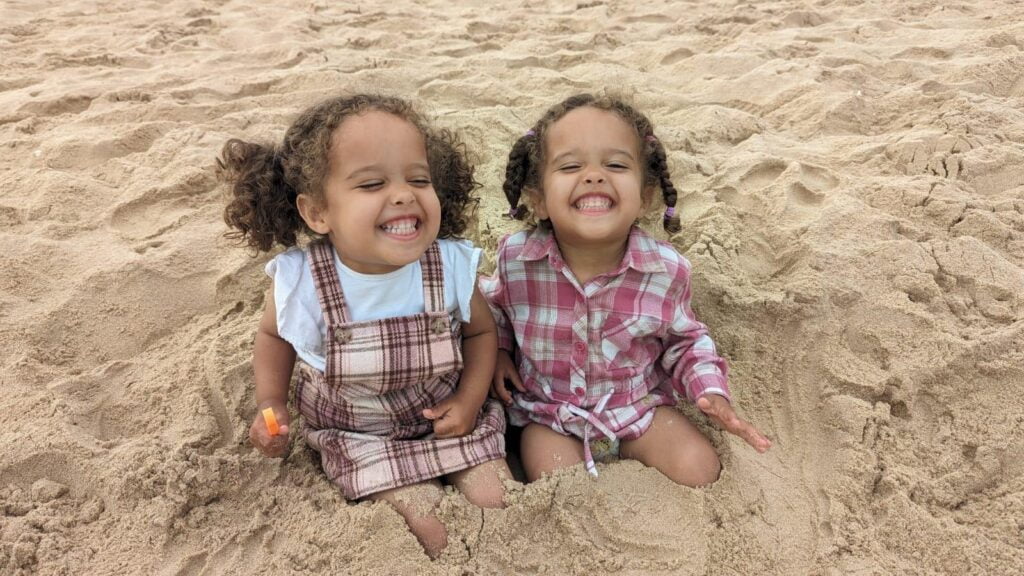
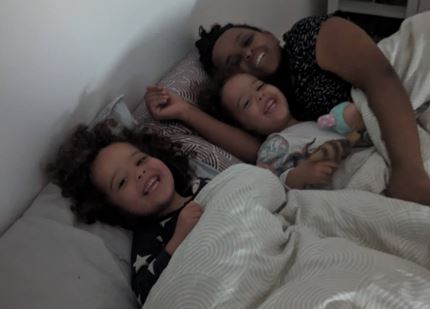
You're NOT Alone: Resources & Support for Mom's with PPD
Finding yourself battling PPD can feel incredibly isolating, but remember that you are not alone. There are a wealth of resources available to support you on your journey to recovery.
In the United States:
- National Maternal Mental Health Hotline: Dial 1-833-TLC-MAMA (1-833-852-6262) to connect with a trained counselor 24/7.
- Postpartum Support International (PSI): Visit Postpartum Support International to find local support groups, online forums, and a crisis text line by texting “Help” to 800-944-4773.
- Suicide & Crisis Lifeline: Call or text 988
- Postpartum Depression Alliance: This organization (Postpartum Depression Alliance) offers educational resources and a search tool to find therapists specializing in perinatal mental health in your area.
For readers in the UK:
- National Health Service (NHS): Your GP is a great starting point (if you can get an appointment – pfft). They can offer support, medication if needed, and help you find a therapist specializing in perinatal mental health.
- National Childbirth Trust (NCT): The National Childbirth Trust (a charity) offers online support groups and a helpline that you can call in, WhatsApp, e-mail or connect via social media for moms struggling with PPD. They also offer antenatal courses if there are specific things you’d like to learn (because this shit doesn’t come with a manual).
- Pandas Foundation: The Pandas Foundation provides support and resources specifically for mothers experiencing perinatal mental illness.
- Samaritans: Available 24/7 on 116 123, if you’re struggling with suicidal or intrusive thoughts.
Europe:
While resources may vary by country, many European nations have strong social safety nets and mental health support systems. Here are some starting points:
- Your local doctor: They can provide initial support and help you navigate the healthcare system to find a therapist specialising in perinatal mental health.
- National mental health hotlines: Many countries have national hotlines for mental health support. You can often find information online or by calling a general health helpline.
- Online resources: Honestly, I had a look, and couldn’t find anything that might have helped me in the midst of my depression geared towards European moms. Most were government or EU programs pledging to help at a structural level. It might be worth speaking to your local health centre to see if they have any programs you could join.
Finding a Therapist:
Many online directories allow you to search for therapists specialising in postpartum mental health. Look for therapists with certifications like PMHNP (Psychiatric Mental Health Nurse Practitioner) or Perinatal Mental Health Certification (PMHC).
My husband also uses BetterHelp for his ongoing therapy sessions. We pay around $200/ month for weekly 45-minute sessions with a therapist. He can also pause the subscription when he needs a break.
But the Most Important First Step…
…is reaching out for help (to the right people who are safe to be vulnerable with). Repeat after me: asking for help is a sign of strength, not weakness. You deserve to feel happy and fulfilled in your motherhood journey.
With the right support, you can find your way back to yourself and enjoy this precious time with your little ones. Don’t hesitate to take that first step. There is hope, and there are people who care.
You're Really NOT Alone: 5 Reddit Threads For Common Experiences
- Thread #1: A closed thread on PPD/ PPA Success Stories
- Thread #2: “Does PPD really get better?” It’s so difficult to see a future when you’re stuck in the darkness of PPD.
- Thread #3: What does PPD feel like? Its the comments on this one – different women explain what going through their days with their newborns is like.
- Thread #4: Is this PPD or is this just the new normal of being a mom? A question I frequently asked myself and often felt like I was therefore a sub-par mother.
- Thread #5: A closed thread on PPD and how people realised they had it.
Final Thoughts
This journey through PPD doesn’t have to be walked alone. Let’s break the silence and stigma surrounding postpartum depression. Sharing our stories and seeking help are not signs of weakness, but acts of courage and self-care. There is hope, mama. Recovery is possible, and the joy of motherhood awaits you on the other side.
Feeling lost or unsure? Don’t hesitate to share your experiences or ask questions in the comments below. Let’s build a supportive community. And if this resonates with you, please share this post on your social media (Facebook, Twitter, Instagram) – you never know who might be struggling in silence and could benefit from knowing they’re not alone.

[…] Self-observation played a huge role in my recovery from postpartum depression. […]
[…] Continuing on my quest for eternal youthfulness and beauty, as well as general health and longevity, I will continue on my weight loss journey until I return to my healthy, pre-babies weight. […]
[…] Therapy isn’t just for people in crisis (or, in my case, people who hadn’t realised they were in crisis). […]
[…] I’ve also had respiratory issues, and eventually even premenstrual dysphoric disorder (or PMDD) that took me by surprise. […]
[…] “Wow,” I thought. “He sounds just like my inner voice from back when I was depressed.” […]
[…] Parenting IS hard. And I think that’s the norm, not the exception. […]
[…] It was terrifying, disorienting, and left me spiralling into a 14-month depression—a depression I …. […]
[…] I think they are very limited, particularly when you have underlying issues like C-PTSD, depression, or […]